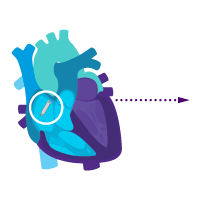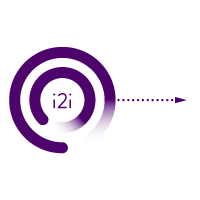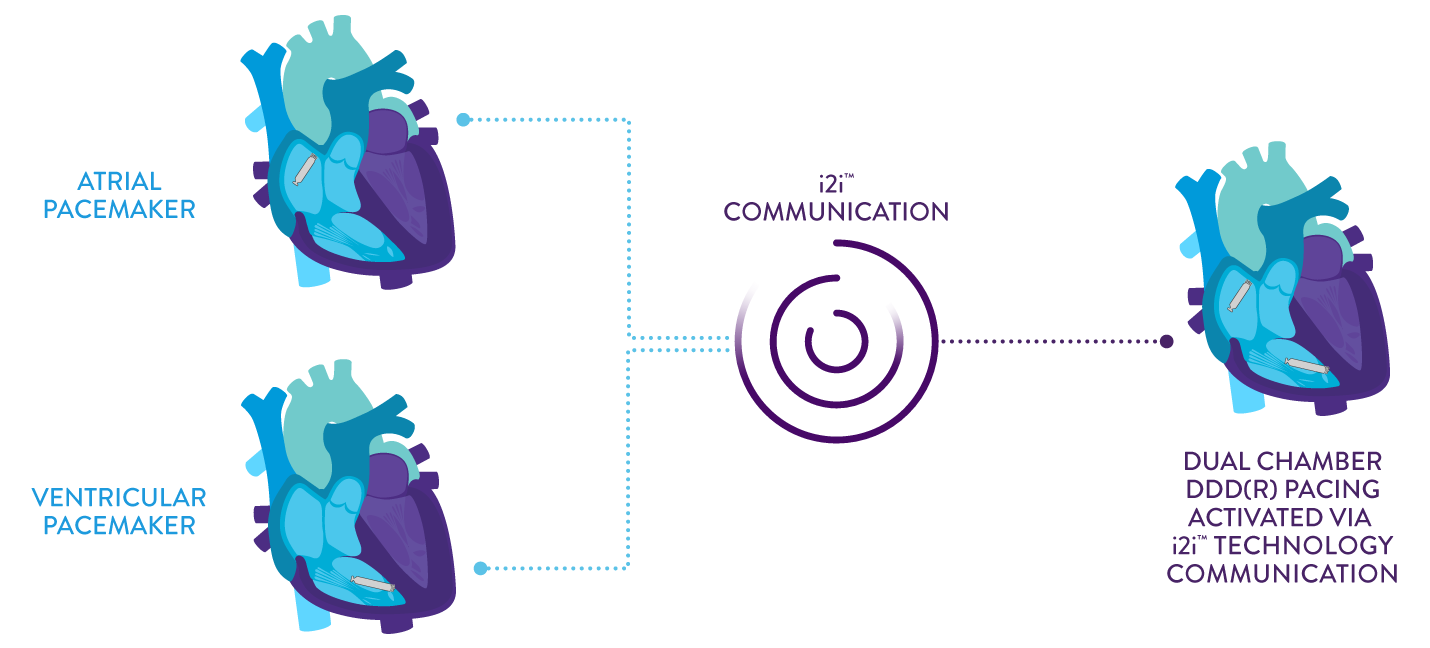
Welcome to the latest in cardiac innovation! At the recent Heart Rhythm 2024 meeting, we shared a pivotal announcement regarding the AVEIR DR LP System. Following the Late-Breaking Clinical Trials presentation, Daniel M. Alyesh, MD, FHRS, from Heart Rhythm TV engaged in a detailed discussion with Professor Reinoud Knops, MD, PhD, shedding light on the one-year safety and performance outcomes from a clinical study of the dual chamber LP system. Watch the video below to learn more about why Professor Knops recommends the AVEIR DR LP System “for patients that really need AV synchrony over all heart rates.”
These findings build upon the initial groundbreaking results, setting new benchmarks in cardiac care. Now, let’s explore what sets this revolutionary technology apart.
The AVEIR DR LP System consists of two individual leadless pacemakers: one for the right atrium, and the other for the right ventricle.1 These two devices can operate alone or together.
Based on your patient’s initial indications and symptoms, you have the option to start with either the atrial or ventricular device, or both. And if their needs change while in a single chamber setup, you can upgrade them to a dual chamber pacing system later by adding the other complementary LP. The flexibility of the system lets you tailor therapy to your patient’s specific needs when they need it. Additionally, long-term retrievability allows for the replacement of the atrial or ventricular device at the end of service without leaving hardware behind.2
Treatment option 1: Start with the atrial device.
Treat sinus node dysfunction today.

Add a ventricular device for heart block later.

i2i™ communication is enabled.

Activate dual chamber pacing therapy DDD(R) via i2i communication.

Treatment option 2: Start with the ventricular device.
Treat rare intermittent heart block today.

Add an atrial device for sick sinus syndrome later.

i2i communication is enabled.

Activate dual chamber pacing therapy DDD(R) via i2i communication.

Tailored therapy is made possible by our proprietary implant-to-implant (i2i™) communication technology. Employing high-frequency pulses to relay messages via the naturally conductive characteristics of the body, this technology allows the pacemakers to establish continuous beat-to-beat atrioventricular synchrony.

With the ability to pace in both the right atrium and right ventricle, we can now offer leadless pacing to treat patients with sick sinus syndrome, chronic symptomatic second- and third-degree AV block, and symptomatic bilateral bundle branch block when tachyarrhythmia and other causes have been ruled out.
See how the minimally invasive procedure can change patient lives like Dennis, an active senior who was implanted with the AVEIR DR LP System a year ago to treat his heart block. View Dennis' story here.
In our earlier clinical trial, data from the initial cohort of 300 patients were pivotal in achieving the endpoints for the AVEIR DR i2i IDE Study. These findings, which demonstrated consistently high mean AV synchrony above or equal to 95% across various postures and gaits, including sitting, supine, left lateral recumbent, right lateral recumbent, standing, normal walking, and fast walking,3 were unprecedented for a leadless pacemaker system at that time. This underscores the remarkable efficacy of our proprietary i2i technology, showcasing its potential to address the diverse needs of patients.
Review the NEWEST, LATE-BREAKING DATA providing further evidence that the AVEIR DR LP System belongs in a class by itself.
REFERENCES:


MAT-2405129 v3.0
Stay Connected